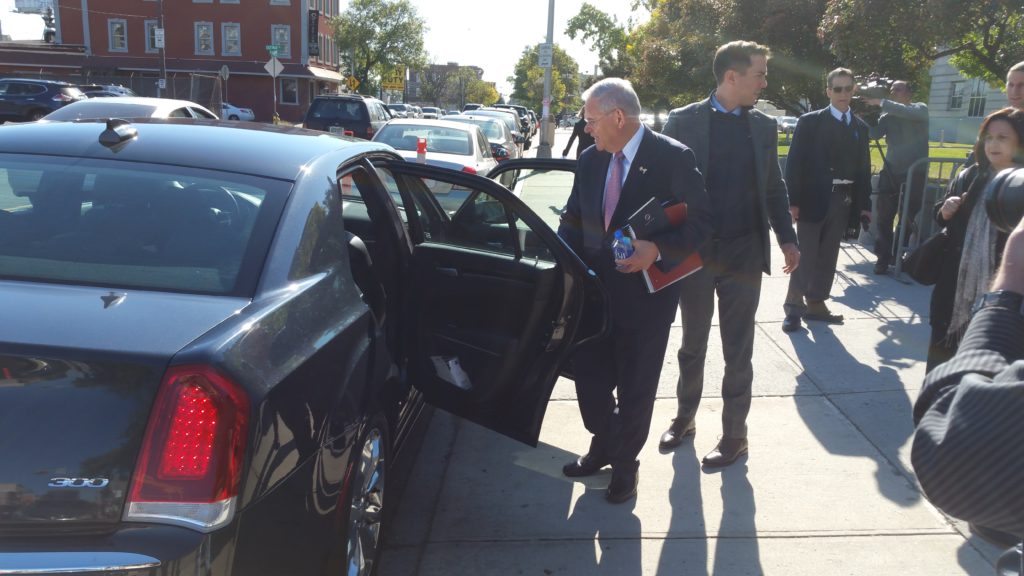Menendez Trial: Tug of War Between Explanations

NEWARK - What was Sen. Bob Menendez's goal when he and his staff contacted officials from the U.S. Department of Health and Human Services between 2009 and 2012: getting a friend of the senator out of a jam, or addressing an issue with Medicare the friend's dispute had brought to light?
Jurors in the senator's corruption trial today saw a tug of war between the two explanations.
Through defense witness Karissa Willhite, Menendez's former deputy chief of staff, attorneys for Menendez and Dr. Salomon Melgen pointed out instances where the senator and his staff seemed concerned with broad issues like multi-dosing and the cost to taxpayers. But in cross-examination of Willhite, often using different sections of some of the same emails used by the defense, the prosecution tried to advance its depiction of Menendez as a corrupt senator on Melgen's retainer.
Department of Justice lead prosecutor Peter Koski showed Willhite a June 12, 2009 email from the senator to Emma Palmer, a legislative assistant in Menendez's office and Willhite's subordinate. The subject line was "Dr. Melgen."
“Please call him ASAP at (readcated phone number) regarding a Medicare problem we have to help him with," the senator wrote.
Afterward, the senator's staff including Willhite drafted talking points for a phone call between Menendez and officials at the Centers for Medicare and Medicaid (CMS). They start with the words, "I was contacted by Dr. Melgen."
Days before the phone call in July 2009, Willhite emailed Menendez and attached a memo on Lucentis, the eye medication Melgen was accused of multi-dosing and improperly billing Medicare for.
"The doctor should have known he could only use and bill a vial for one use…He can’t bill Medicare for something he is getting for free," Willhite wrote.
With the emails, Koski tried to contradict Willhite's earlier testimony she was only researching Medicare regulations and had no knowledge of Melgen's issues.
"Do you want to change your testimony?" Koski asked several times.
"The Melgen case was the example that we used to try and raise the confusion that was still at CMS," Willhite said.
In late July, Menendez spoke by phone with Jonathan Blum, who was then the principal deputy administrator for CMS. It did not go well, as Blum previously testified.
On the night of July 31, Palmer wrote an email to Willhite with the subject line "Talking to Dr. Melgen."
“He is v upset,” Palmer wrote.
But Willhite firmly denied what former Blum said during his testimony, that during the phone call someone from Menendez’s office said what Melgen did was "bad medicine."
“No, no way absolutely not,” Willhite said during direct questioning from Menendez's attorney Abbe Lowell. “That’s not anything I said, that’s not anything I heard, it’s not anything I ever heard.”
“I’ve never even heard that,” she added. “I don’t know where that came from.”
The tone of the call was not "angry," Willhite said.
"The senator is a strong advocate, we had been trying to get to the bottom of this issue, get clarification from the agency so I think he made a strong statement," Willhite said.
The lawyers finished with Willhite's testimony just before the scheduled end of the trial day at 2:30 p.m. The defense will begin the day tomorrow with a fresh witness.
Defense lawyers estimated their case will run about two more weeks. They could wrap up around the end of the month, landing closing arguments and deliberations on the first few days of November.





